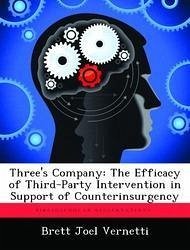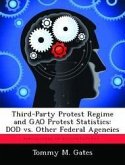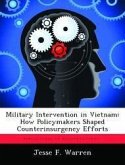Does third party military intervention help or hurt an incumbent government during an insurgency? This study attempts to answer this question by testing prevailing military theories of counterinsurgency in the context of third party intervention using basic tests for statistical significance and bivariate contingency. The results show that intervention on behalf of a counterinsurgent decreases the likelihood of a successful government outcome, and specifically, interventions in general, interventions involving the deployment of combat forces, interventions involving military occupation, and interventions by democratic states decrease the likelihood of counterinsurgent success. Early intervention, meaning the commitment of third-party support within the first year of conflict, does not appear to have a significant effect on counterinsurgency success. Likewise, the decision to end an intervention early does not appear to significantly alter the chance of counterinsurgent failure. Interventions in support of an "indirect" approach to counterinsurgencies are the only cases that exhibit a significant improvement for the chances of successful outcome.








